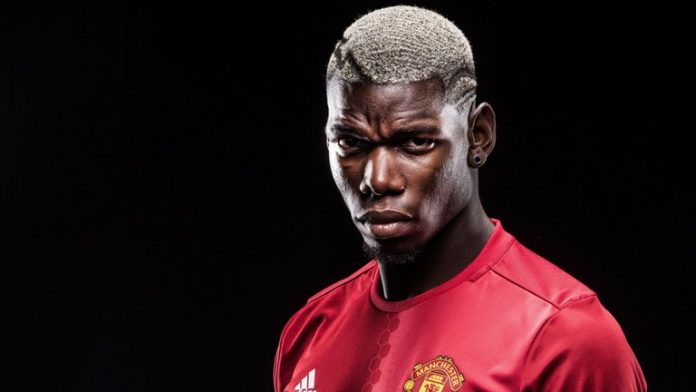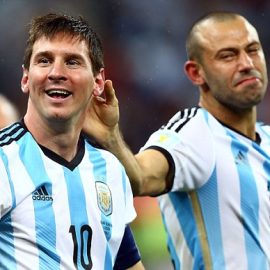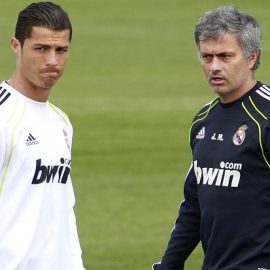Image courtesy of the Washington Post
Soccerlens is very pleased to welcome Mr. Steven Goff who is one of the most respected and prominent football (soccer) writers in North America. While still an undergraduate at American University in Washington, Mr. Goff began his journalistic career with the Washington Post. In 1987, he began to cover college soccer.
Many years ago, I translated a brief article for Mr. Goff from the Italian sports daily, La Gazzetta dello Sport, which discussed the successful American bid to host World Cup 1994. He invited me to meet him at the press box at Robert F. Kennedy Memorial Stadium. I can still recall what he told me.
“In a few years, this place will be full to the rafters.”
On that particular night, there were only 3,000 present for a semi-professional match. When Washington hosted four games (Holland x Saudi Arabia, Italy x Mexico, Saudi Arabia x Belgium, and Spain x Switzerland), Mr. Goff’s prediction was spot on.
Since that time, Mr. Goff has covered international soccer for The Post from all over the world. During his distinguished career, Mr. Goff has reported from 7 FIFA World Cups: 1994, 1998, 2002, and 2006 for the men, along with 1999, 2003, and 2007 for the women. Since the inception of D.C. United into the nascent MLS (Major League Soccer) in 1996, Mr. Goff has been the lead correspondent for The Post. For many years, he has also closely reported on the US Men’s and Women’s National teams, respectively.
During the past year, he began a very successful blog called Soccer Insider.
Steve, please accept a warm welcome to Soccerlens.
You have covered international football for The Post at many different venues, and a variety of countries. Has there been a particular place that has imbued a lasting impression?
I’ve been to Wembley (old, not new), Nou Camp, Azteca, Stade de France, Berlin’s Olympic Stadium, Amsterdam Arena, and all were wonderful experiences. But perhaps my favorite place to go is Saprissa in Costa Rica. It’s a mid-sized stadium in a blue-collar area outside San Jose with a view of the surrounding mountains and tall stands on each sideline complemented by rowdy areas behind the goals. The noise is deafening. They call it La Cueva de Monstruo (The Monster’s Cave). How cool is that?
Since the early pioneers such as John Harkes at Sheffield Wednesday, and Kasey Keller at Millwall, many Americans have continued to distinguish themselves in English football. Despite “being separated by a common language,” why do Yanks seem to adapt well to the English game?
Seamless cultural adaptation makes life easier, so perhaps that helps a player settle into an English club quicker than if he were in Germany or elsewhere. Many of the successful Americans in England/Scotland are goalkeepers, so the style of play is irrelevant. Besides that, I have no answers.
Due to the recent arrival of Juan Pablo Angel (Colombia – New York Red Bulls), Cuauhtemoc Blanco (Mexico — Chicago Fire), and David Beckham, the profile of the sport, and MLS, has risen significantly in North America. In your opinion, what factors are needed to sustain future domestic growth, along with international credibility?
Quality of play must continue to improve. And the only way that will happen is if further financial commitment is made by the league’s investors.
Let’s discuss the upcoming MLS Cup Final in Washington, D.C. on 18 November. The New England Revolution, who are making their third straight Cup final appearance, are managed by former Liverpool legend, Steve Nicol, and will face the defending champion, Houston Dynamo. Can you please explain the playoff system used in Major League Soccer, and provide us with an overview of the final?
Playoffs are the American way of deciding a champion in most sports. As much as D.C. United would like to proclaim itself the best team in MLS this year (and last year) because they won the Supporters’ Shield, the bottom line is that they failed in the playoffs. Eight of the 13 teams advanced to the playoffs this year. The first round was decided in home-and-home, total-goals series. The semifinals and final are one game. Houston won last year against New England and will be slightly favored to win again this year.
Within the last year, you started a blog, hosted by your newspaper, called Soccer Insider. A few weeks ago, you passed the 30,000th comment milestone. How has blogging changed sports journalism, along with your own approach to soccer coverage?
The blog provides a forum for interaction with the readers/fans and allows me to share information and news at a moment’s notice several times per day. The news cycle has gone from once daily (in the print edition) to a hectic, and often stressful, 24-hour non-stop process.
You have interviewed many men and women from the world of football. Please tell us about your experience with Paul “Gazza” Gascoigne?
Not much of an experience, really. He was in Washington for a week a couple years ago on trial with D.C. United. He had one or two press conferences, but there were no one-on-one interviews. A few years earlier, I observed his interaction with the English media during an England training camp before the 1998 World Cup.
Steve, thank you very much for contributing your expertise to Soccerlens. Continued success, and all my best wishes to you.
Steve Amoia is the author and editor of World Football Commentaries.
Add Sportslens to your Google News Feed!





